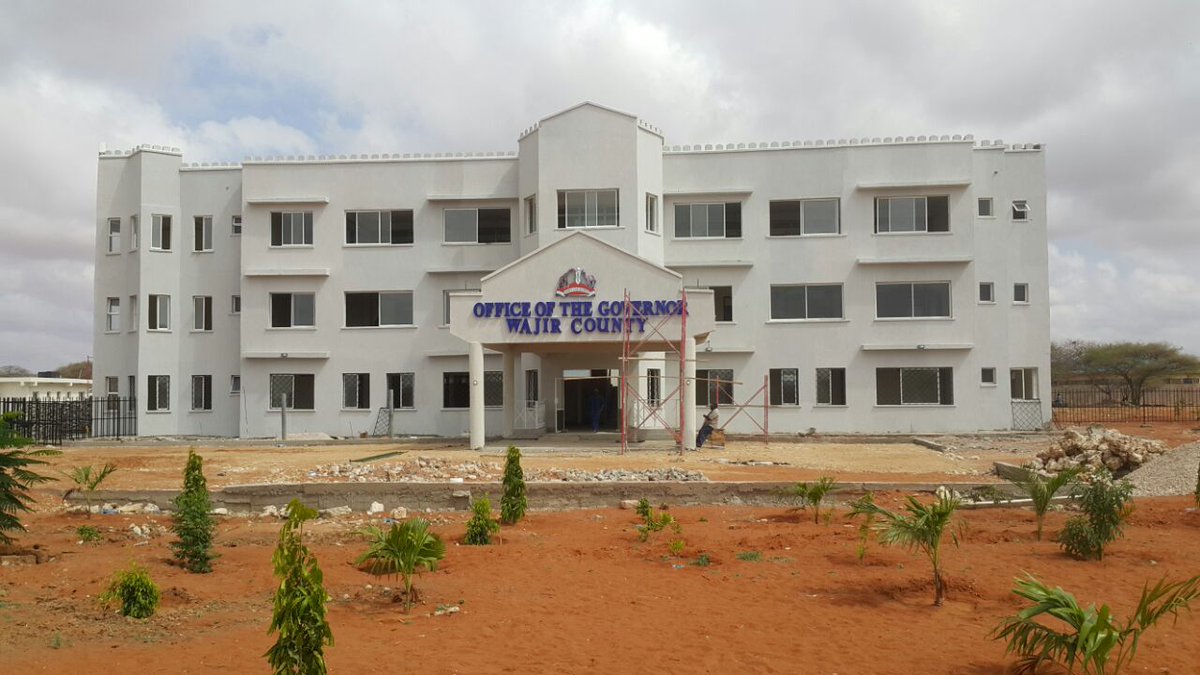Investigations
Exposing Corruption in Wajir County: Governor Ahmed Abdullahi’s Administration Under Scrutiny

Wajir County, under the leadership of Governor Ahmed Abdullahi, has come under fire for a series of financial irregularities and questionable expenditures.
The findings from the audit reveal a disturbing pattern of mismanagement, lack of accountability, and potential corruption that undermines the integrity of the county’s governance.
Corruption in Wajir County: Unconfirmed Expenditure on Casual Wages
The audit report highlights a significant issue regarding the casual wages expenditure, amounting to Kshs. 59,957,380.
This amount was included in the total compensation of employees, which stands at Kshs. 3,966,304,190.
However, records indicate that casual employees were engaged continuously for over three months, violating the County Human Resource Manual, 2013.
Additionally, the necessary muster rolls and County Public Service Board approvals were not available for audit review.
The lack of proper documentation raises questions about the regularity, accuracy, and completeness of these expenditures.
Unsupported Training Expenses
Training expenses totaling Kshs. 37,740,227 were recorded under the use of goods and services.
However, Kshs. 1,409,600 of this amount lacked supporting documentation such as a training policy, training needs assessment, departmental skills inventory records, and course approval.
The absence of these documents makes it impossible to verify the accuracy and completeness of the training expenditure.
Unsupported Supply and Delivery of Medical Drugs
The audit also reveals discrepancies in the supply and delivery of medical drugs.
Payments totaling Kshs. 121,928,486 were made to the Kenya Medical Supplies Authority (KEMSA) for medical drugs.
However, essential store records such as receipt vouchers, store ledgers, and issue notes from the receiving health facilities were missing.
This lack of documentation casts doubt on the accuracy and completeness of the expenditure.
Unsupported Completion of Wajir County Assembly Office
The construction of the Wajir County Assembly offices, with an expenditure of Kshs. 174,693,376, also faced scrutiny.
The project, initially contracted at Kshs. 179,209,040, was completed by a new contractor, but key documents such as the project file for the initial contract, termination details, cost estimates for outstanding works, and ad-hoc committee appointment letters were not provided for review.
This raises significant concerns about the transparency and accuracy of the project’s expenditure.
Unsupported Transfers to Other Government Entities
Transfers to other government entities amounted to Kshs. 1,137,987,491, with Kshs. 26,841,765 paid to various health centers and dispensaries.
However, the management failed to provide accounting documents and returns from beneficiary institutions, leaving the accuracy and completeness of these transfers unverified.
Unexplained Variances in Transfers to Wajir Water and Sanitation Company Limited
A notable variance of Kshs. 36,265,961 was identified in the transfers to Wajir Water and Sanitation Company Limited.
The county government’s financial statements reflected Kshs. 495,928,250 in transfers, while the company’s financial statements showed a total support of Kshs. 532,194,211.
This discrepancy remains unexplained and unreconciled, raising further concerns about financial transparency.
Budgetary Control and Performance Issues
The audit report also points out significant budgetary control and performance issues.
The county experienced an under-funding of Kshs. 1,506,862,306, representing 14% of the approved budget, and an under-expenditure of Kshs. 1,081,781,633, or 10% of the approved budget.
Additionally, exchequer receipts of Kshs. 2,391,731,907 were received in June and July 2023, indicating that the county executive struggled to implement its annual budget programs effectively.
This underperformance negatively impacted service delivery to the public.
Unresolved Prior Year Matters
The management’s failure to address prior year audit recommendations further compounds the governance issues in Wajir County.
Despite repeated audit reports and recommendations by the County Public Accounts and Investment Committee of the Senate, there is no evidence of measures taken to implement these recommendations, violating Section 31(1)(a) of the Public Audit Act, 2015.
Compensation of Employees
Several issues were noted in the compensation of employees:
- Un-remitted Statutory Deductions: A total of Kshs. 694,942,885 in statutory deductions remained unremitted, risking legal actions and penalties.
- Salaries for Wajir Water and Sewerage Company Staff: Kshs. 83,275,295 was inappropriately spent on salaries for the Wajir Water and Sewerage Company, which should have operated independently.
- Non-compliance with Law on Wage Bill: Employee compensation represented 42.6% of total revenue, exceeding the legal limit of 35%.
- Employees Beyond Retirement Age: Nine officers over the age of 60 were still in service without proper authorization.
- Over-committed Salaries: Seven officers received net salaries less than one-third of their basic salaries, violating HR policies.
- Irregular Interim Staff Engagements: Staff were engaged in interim positions not recognized by the public service framework.
- Staff Medical Insurance: The premium for staff medical insurance was not paid in full and in advance, contrary to the contract terms and the Insurance Act, 2020.
Irregular Payments and Contributions
Irregular payments included Kshs. 5,000,000 to the Council of Governors and Kshs. 3,000,000 to Frontier Counties Development Council Limited, both lacking proper legal establishment and documentation.
Acquisition of Assets and Tax Compliance
The audit found that Kshs. 6,521,703 in withheld taxes was not remitted to the Commissioner of Taxes.
Also, the rehabilitation of a high flood light mast did not meet project specifications, with physical verification revealing non-functional lights and unpainted guard rails.
Conclusion
The audit findings paint a grim picture of financial mismanagement and corruption within Wajir County under Governor Ahmed Abdullahi’s administration.
The numerous unsupported expenditures, non-compliance with legal requirements, and lack of accountability highlight the urgent need for comprehensive reforms to restore transparency and integrity in the county’s governance.
The people of Wajir deserve better, and it is imperative that these issues are addressed promptly to ensure efficient and honest use of public resources.
Kenya Insights allows guest blogging, if you want to be published on Kenya’s most authoritative and accurate blog, have an expose, news TIPS, story angles, human interest stories, drop us an email on [email protected] or via Telegram
-

 Investigations1 week ago
Investigations1 week agoBillions Stolen, Millions Laundered: How Minnesota’s COVID Fraud Exposed Cracks in Somali Remittance Networks
-

 News1 week ago
News1 week agoUS Moves to Seize Luxury Kenya Properties in Sh39 Billion Covid Fraud Scandal
-

 Investigations1 week ago
Investigations1 week agoJulius Mwale Throws Contractor Under the Bus in Court Amid Mounting Pressure From Indebted Partners
-

 News1 week ago
News1 week agoMAINGA CLINGS TO POWER: Kenya Railways Boss Defies Tenure Expiry Amid Corruption Storm and Court Battles
-

 Americas1 week ago
Americas1 week agoUS Govt Audits Cases Of Somali US Citizens For Potential Denaturalization
-

 Americas3 days ago
Americas3 days agoTrump Says US Needs Greenland For Its National Security
-

 Sports3 days ago
Sports3 days agoThe Easy Way to MSport Ghana: From Login to Your First Bet
-

 Politics20 hours ago
Politics20 hours agoHow Ruto-Moi Deal Died After Temporary State House Ceasefire





















